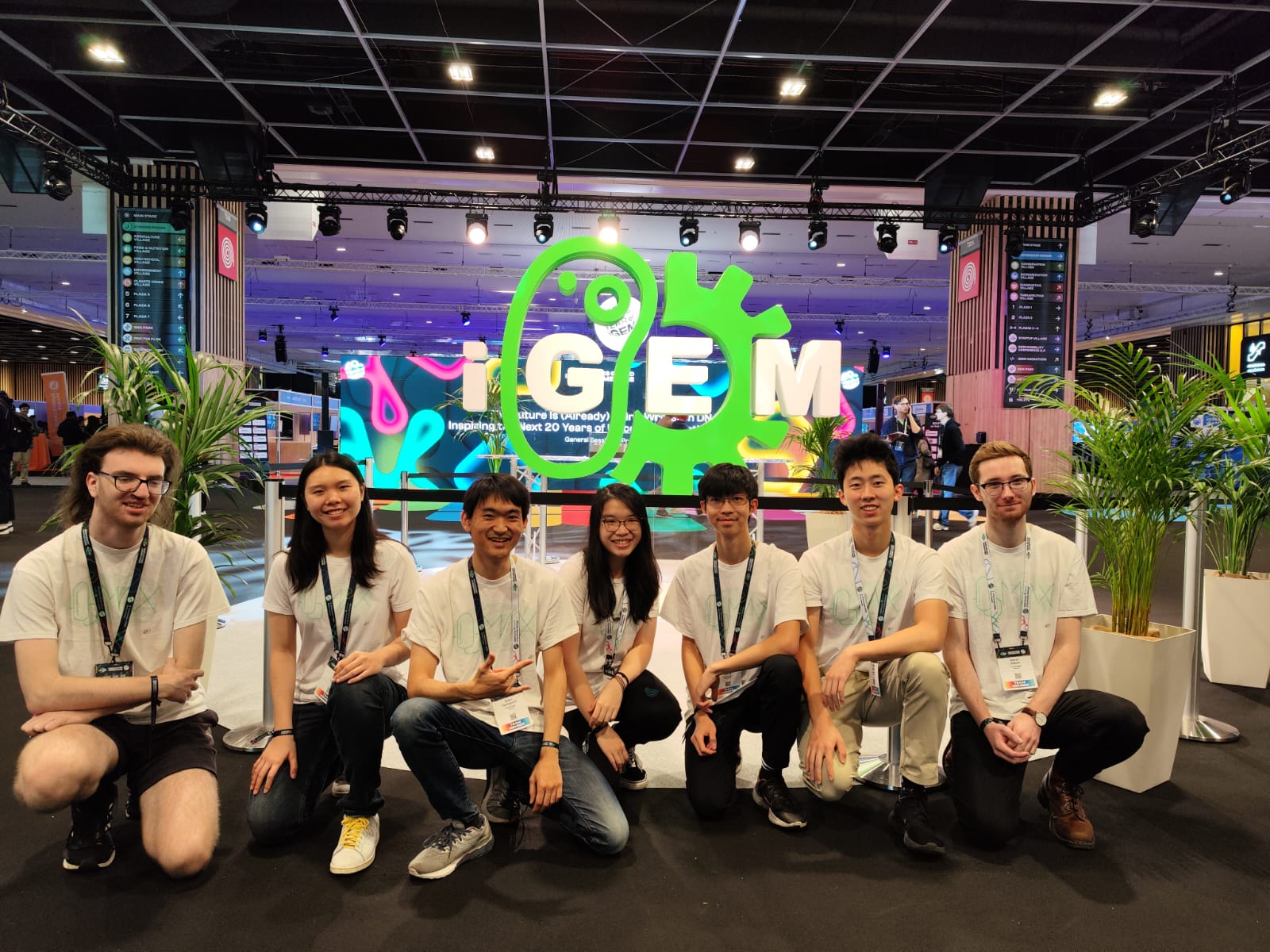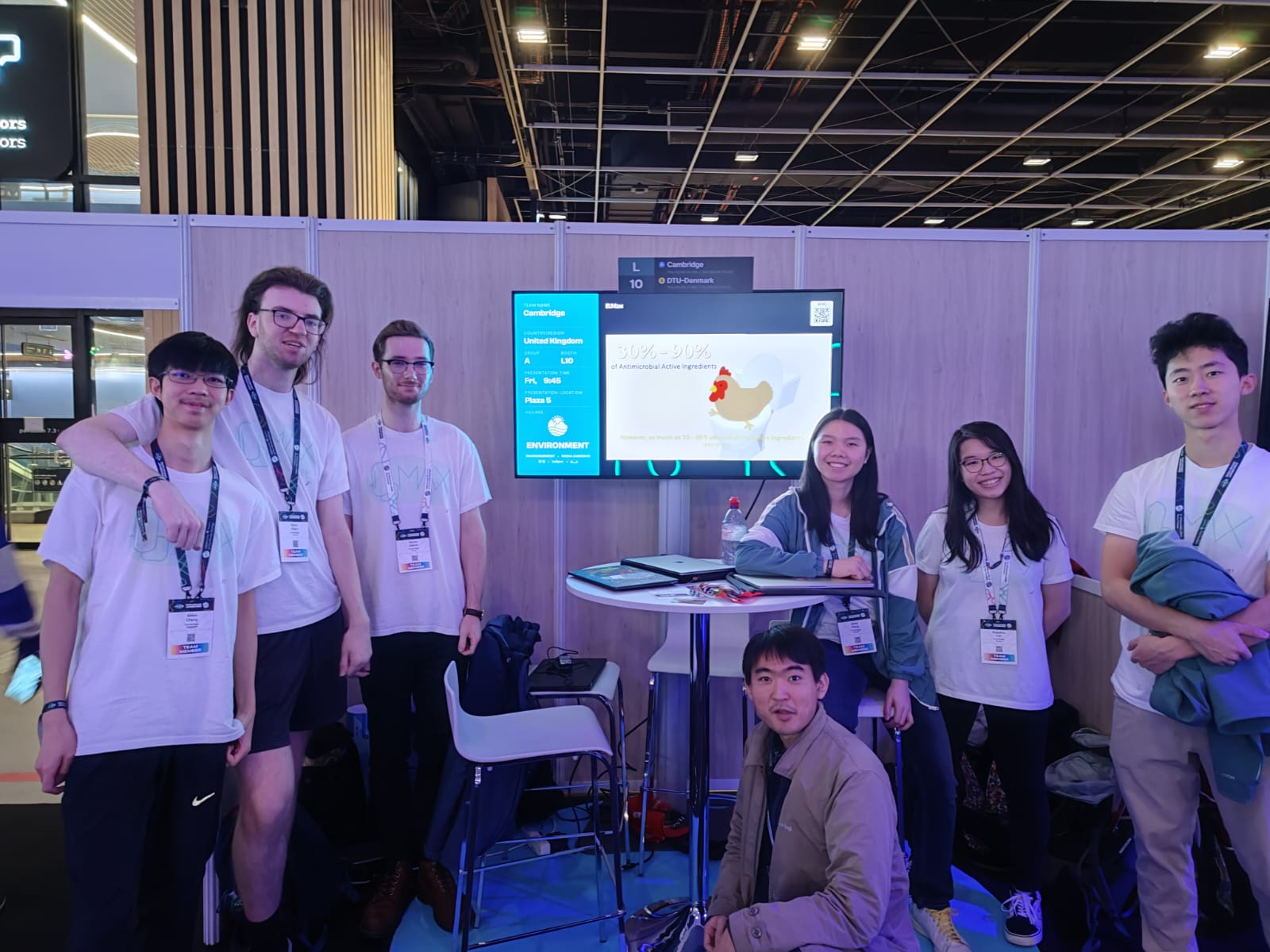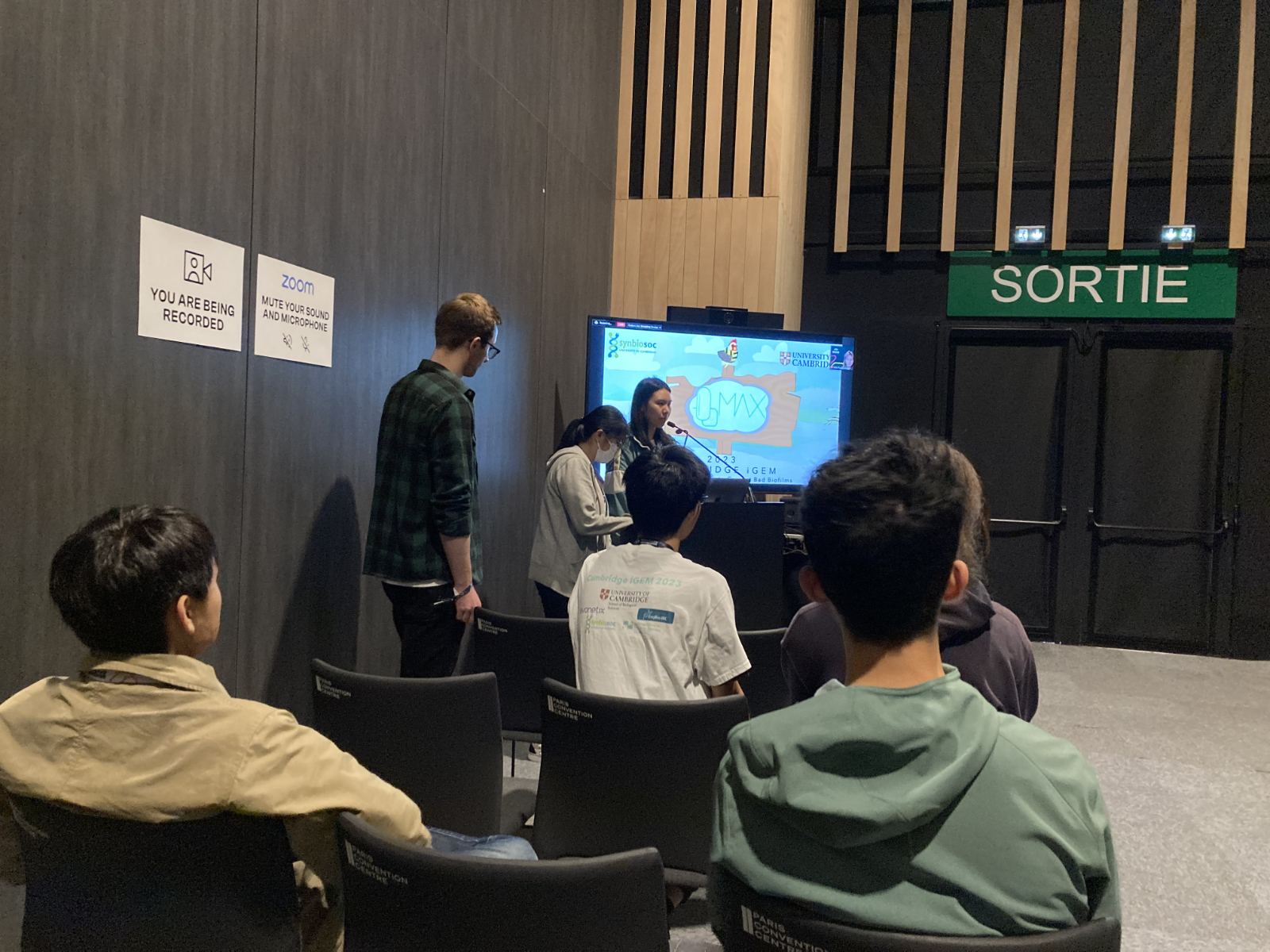
Submitted by Vicky Yee K Reid on Thu, 15/02/2024 - 10:02
The University of Cambridge iGEM Team obtained a Gold medal in the 2023 International Genetically Engineered Machine (iGEM). The team engineered a bacterial biofilm that can resist invasion from pathogenic bacteria in the hope of combating antimicrobial resistance.
The University of Cambridge iGEM Team obtained a Gold medal in the 2023 International Genetically Engineered Machine (iGEM), the world’s biggest international synthetic biology competition with over 400 participating teams from 66 countries this year. iGEM takes place annually, with student teams from around the world trying to solve real-world issues using the framework of engineering and the technology of synthetic biology. The competition culminates in a Grand Jamboree where all the participating teams showcase their work in front of judges and other teams.
The Cambridge iGEM Team this year worked on engineering a protective biofilm (a matrix of polysaccharides, proteins, and DNA produced by the bacteria within it) that can prevent surface colonisation by pathogenic bacteria which usually form pathogenic biofilms on surfaces. The project was designed towards a use case on animal farms, where bacterial infections cause loss of productivity and animal suffering. To combat such problems, farmers typically resort to frequent use of antimicrobial drugs, contributing to the growing crisis of antimicrobial resistance. As a good starting point, the team used a non-pathogenic and strong biofilm-forming bacteria, Bacillus subtilis. By disabling sporulation and overexpressing genes involved in the biofilm formation pathway in the bacteria, the team created a B. subtilis strain that can form an effective protective biofilm against the model pathogen E. coli, reducing surface-associated E. coli cell count by over 100,000 fold!
To ensure that the engineered bacteria is in fact beneficial when applied to farms, the team consulted academics from the Cambridge Veterinary School, the manager of Cambridge University Farm, and experts from the animal probiotics industry. In doing so, the team learned that a protective biofilm would be particularly useful in the all-in-all-out type of farming, where farm animals like pigs and broiler chickens are periodically ushered out of their quarters for cleaning and disinfection to take place. The protective biofilm can then be applied to farm surfaces after cleaning and disinfection, creating long-lasting protection against pathogens, thereby reducing the risk of infections and the reliance on antimicrobials for disease prevention.
| 2023 Cambridge iGEM Team at the Jamboree |
The team at their Jamboree team booth with a screen playing their promotion video |
2023 Cambridge iGEM team at Jamboree Judging Session |
The 2023 Cambridge iGEM Team welcomes anyone who are interested in their project to visit their wiki
To keep up to date with news, events and iGEM please subscribe to the Cambridge University SynBioSoc Slack channel or see our linktree.
Author Information
Anlei Peng, Kieran Abbott, Kavi Shah
References & Links
Credits & Acknowledgements
The team would like to thank all the academics who have been extremely supportive throughout the project, especially Dr Jenny Molloy and Dr Graham Christie from the Department of Chemical Engineering and Biotechnology, Dr Ash Zarkan from the Department of Genetics, Dr Diana Fusco from the Department of Physics, Dr Andrew Grant and Prof Mark Holmes from the Cambridge Veterinary School, Dr Martin Welch from the Department of Biochemistry and Dr Jenny Zhang’s group from the Department of Chemistry.
The team is also very grateful to sponsors whose generous support has enabled the success of the project. Many thanks to the University of Cambridge School of Biological Sciences, the Cambridge Engineering Biology Interdisciplinary Research Centre, and the Cambridge Centre for Data-Driven Discovery, as well as industrial supporters Evonetix, Colorifix, ATUM and RNAssist.
Finally, thank you to the Cambridge University Synthetic Biology Society (CU SynBioSoc) for relaunching the Cambridge iGEM team in 2022 and recruiting the iGEM team this year. The team greatly appreciated the help from the CU SynBioSoc instructors, including Chris Micklem, Kavi Shah, Georgeos Hardo, Chi Ki Leung, Dr Jarrod Shilts, Sharon Ho, Anthony Phung and Alexis Zeng.
List of team members: Alden Cheng, Amrit Gill, Anlei Peng, Echo Gilpin, Kieran Abbott, Kizen Yamaguchi, Rosaline (Qianying) Lee, Ruige Kong.
Image Credits
Jarrod Shilts




